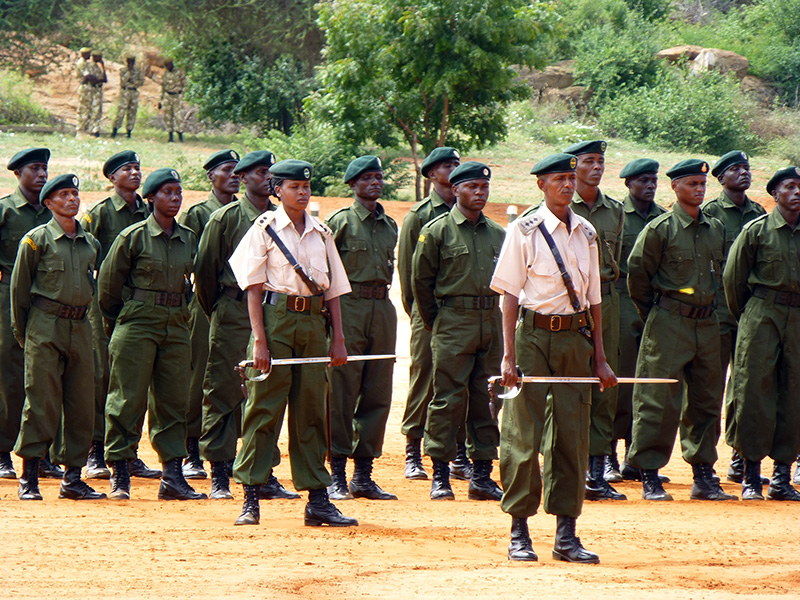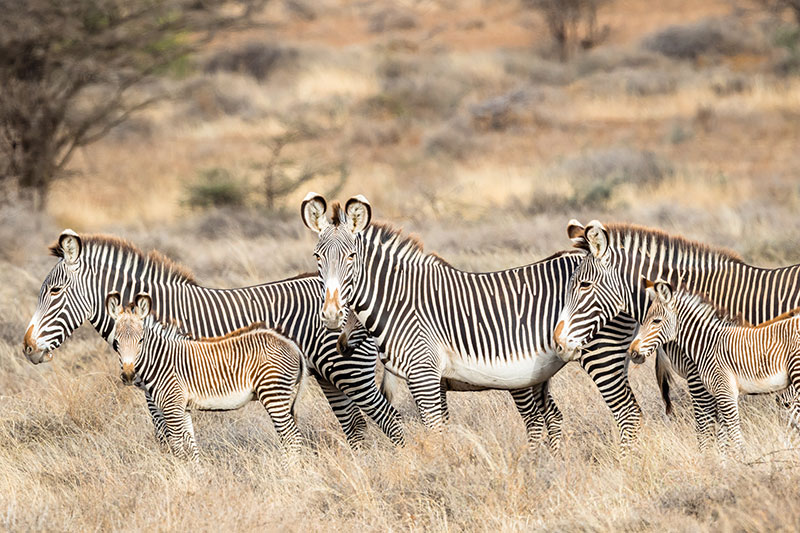© Heath Holden
Wildlife Protection
The El Barta plains were historically a Grevy’s zebra hotspot but the population was decimated by hunting for the skin trade before its ban in 1977. Today, Grevy’s zebra are poached for subsistence meat. Our Grevy’s Zebra Ambassadors are employed from local communities, including those that have traditionally hunted wildlife; engaging them directly in the program has significantly increased community responsibility for protecting the species, and increased local vigilance and reporting of illegal activities.
GZT employs 16 Grevy’s Zebra Ambassadors and two Radio Operators from nine communities. Since the inception of this program in 2007, poaching by resident communities that traditionally hunted wildlife for subsistence meat has dramatically decreased; however, poaching threats still exist from migrating pastoralists who have not had exposure to conservation, and from warriors who are planning livestock raids and live off wildlife.
Our Grevy’s Zebra Ambassador team is trained in security and surveillance operations after attending the Kenya Wildlife Service’s Law Enforcement Academy in southern Kenya. The course is designed to enhance anti-poaching and community engagement skills. Through provision of uniforms and communications equipment, the security network has been expanded and strengthened across the region. We have a dedicated radio base in El Barta and we work with the Kenya Wildlife Service, the community conservancies of Ndoto, El Barta and Nyiro, the Samburu County Government, Marwell Wildlife and the Milgis Trust to follow up any incidents of insecurity in the areas patrolled by our Ambassadors.


